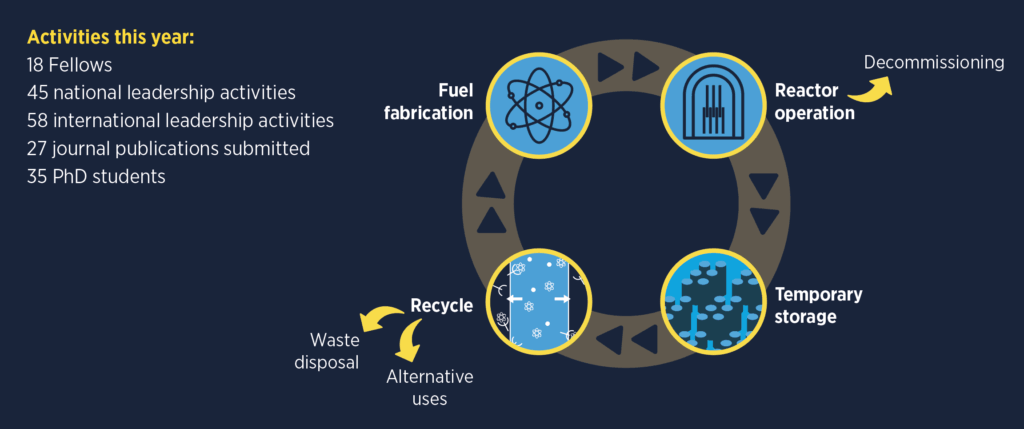Science and technology is the beating heart of UKNNL and it’s our world-leading scientists who continue to drive forward advances with their expertise and innovative thinking.
Recognised as leaders in their respective fields, whether in science, technology or engineering, our Fellows help to promote technical excellence and shape national and international policy.
They are outstanding role models to our teams across UKNNL, as well as to collaborators across the sector, and are key to shaping a clean, sustainable nuclear future for the UK.
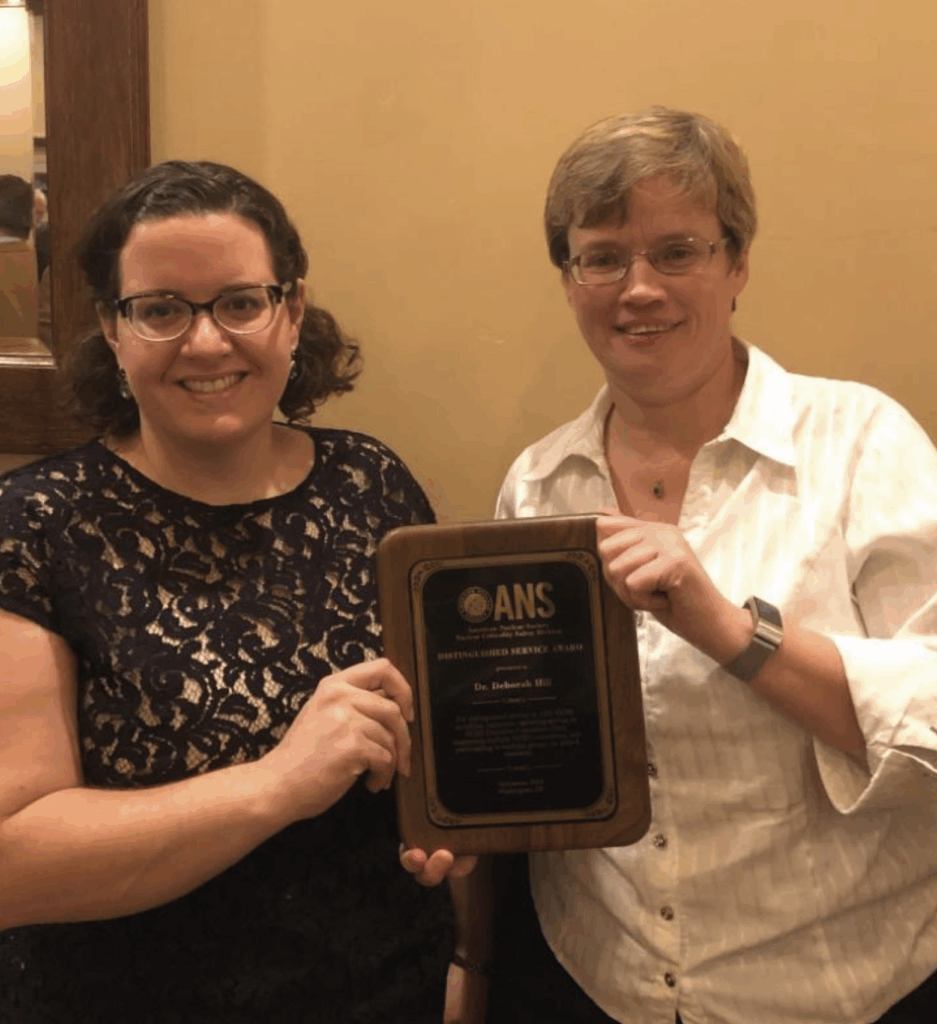
“An UKNNL Fellowship award is a prestigious appointment that recognises the important technical leadership role that those individuals fulfil within both UKNNL and the wider industry.
I’m proud of the role our Fellows play in shaping and driving the technical direction of the laboratory, enabling us to collaboratively deliver on our strategic ambitions whilst nurturing the next generation of subject matter experts.”
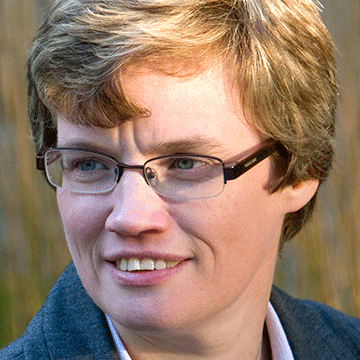
Dr Deborah Hill
Head of UKNNL Fellowship
Quality
The UKNNL Fellowship currently has 18 members across Senior Fellows, Fellows and Associate Fellows. These are experts with individual expertise in materials science, environmental radiochemistry, fuel manufacture, actinide chemistry, decommissioning, statistics, nuclear safety and more. All have leading international roles and reputation; they are mentors and represent UKNNL and the UK at prestigious scientific conferences and meetings around the world.
This year, David has led a major international programme to evaluate strategies for advanced fuel cycle options for future reactor technologies and developed a ground-breaking new joint project with OECD-NEA in relation to managing used fuel from advanced modular reactors. These activities are vital for shaping future policy on nuclear technologies, to put UKNNL and the UK at the forefront of defining the future of nuclear around the world.
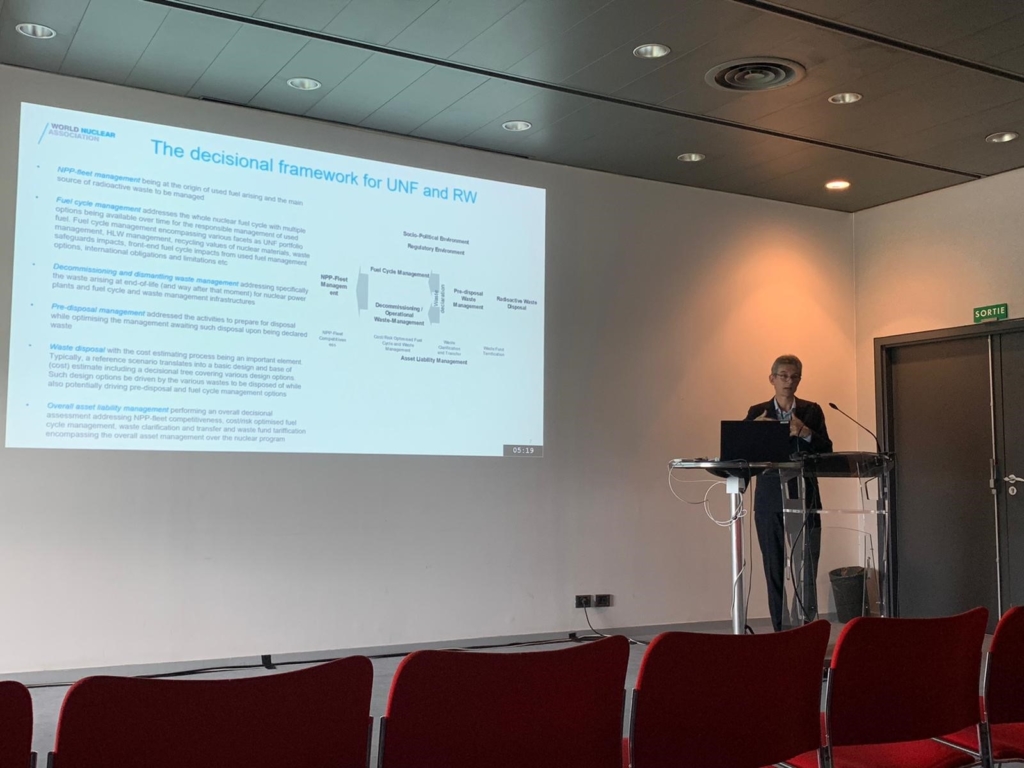
Partnerships
Building collaborations that have real impact
Our Fellows strive to make new scientific discoveries, and to apply their knowledge and understanding to meet challenges. Part of this involves sharing information with other experts and building collaborations. Dr Tom Carey is an Associate Fellow in decontamination and decommissioning. The Associate Fellow scheme was introduced in 2022 as a key new step in the UKNNL technical career pathway, to acknowledge and support our future technical leaders. Dr Carey’s collaborations with European partners and UK academic institutions such as The University of Manchester and Lancaster University are uncovering fundamental mechanisms behind the contamination of materials. He has been recognised as an associate professor by the University of Birmingham, where he is developing new methods for the treatment of radioactive liquids. Dr Carey is also building partnerships with national bodies and regulators such as the Environment Agency and Public Health England, to develop strategies for post-emergency situations.
This year, Dr Carey has:
- Supported four PhD projects and seen two other PhD researchers graduate, following which they took on jobs in the industry to further build on the skills developed in academia
- Established quarterly Decontamination Centre of Excellence meetings with Sellafield Limited, where PhD researchers are invited to present and share their work directly with industry
- Delivered a training course on decontamination techniques to stakeholders in Europe and to the UK’s emergency responders to share best practice in this arena
- Presented at the International Conference on Environmental Remediation and Radioactive Waste Management (ICEM 2023) and published research in several journals to share the latest research findings with the wider scientific community.
Read Dr Carey’s recently published work:
Methods for the destruction of oxalic acid decontamination effluents
- J. Blenkinsop et al, Front. Nucl. Eng. (2024) 3, 1347322
Read the research article on the Frontiers in Nuclear Energy journal website
A review of contamination of metallic surfaces within aqueous nuclear waste streams
- D.N.T. Barton et al, Prog. Nucl. Energy, (2023) 159, 104637
Read the research article on the ScienceDirect website
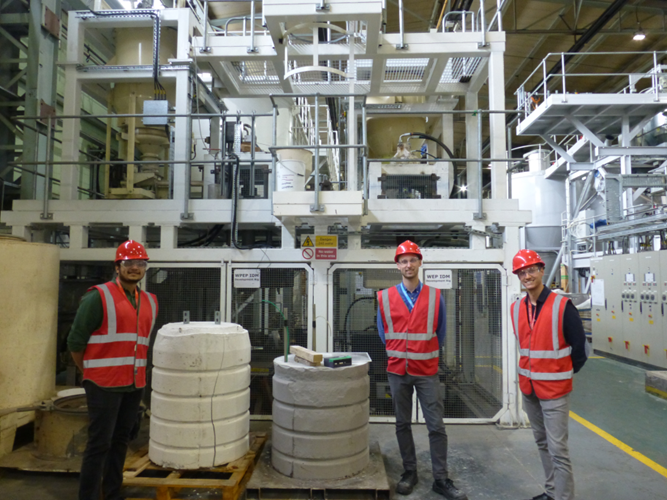
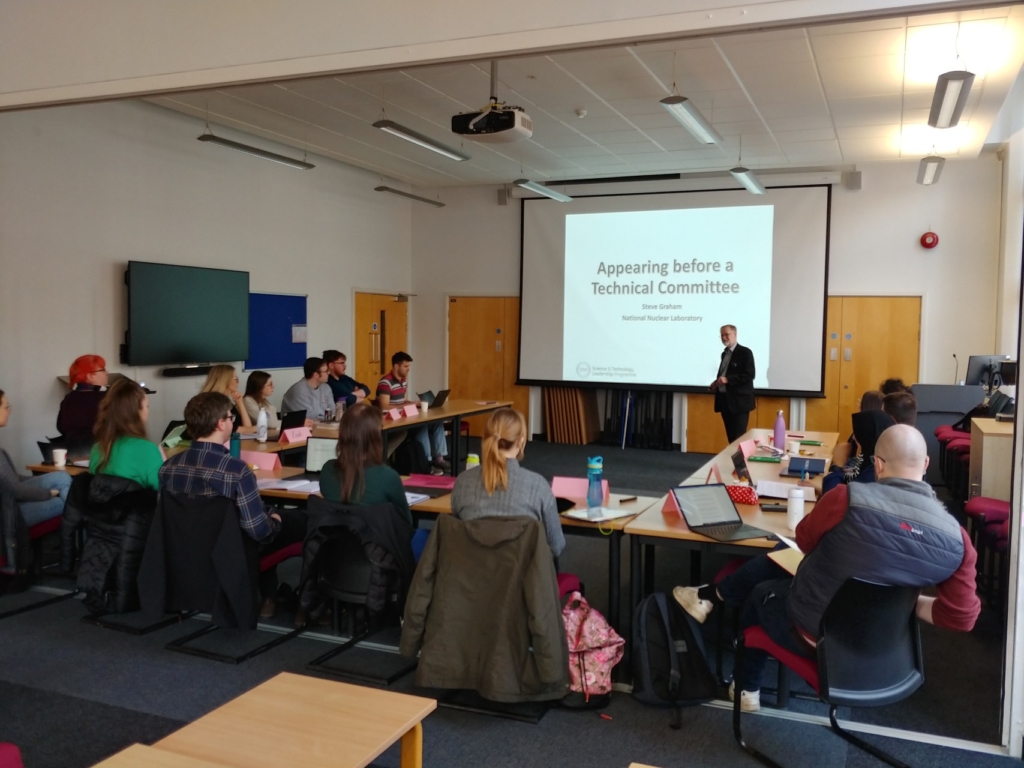
Talent
Fostering the next generation of subject matter experts
The very best scientists use their leadership skills to mentor and encourage others. Being an influential expert in your field means you have great power to help shape other experts. Dr. Steve Graham, Fellow in nuclear thermal hydraulics, has pioneered a new educational programme to develop scientists and engineers at an early stage of their career. The Science and Technology Leadership Programme is a postgraduate qualification that introduces course participants to key leadership skills and enables them to put them into practice under the guidance of a mentor.
“The course was very thought-provoking, it provided insights that made me view things from different perspectives. This course has enhanced skills that will shape my career and guide me through challenges ahead.”
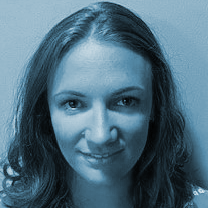
Sarah Forder
Team Leader (Radiation Protection Advisers) and Deputy Group Leader (Radiation Protection & Dosimetry), AWE
The programme evolved into an accredited academic course run in conjunction with the University of Liverpool, following the success of the original course developed within UKNNL. Skills taught include leadership, communication, impact and influencing. Over 50 future leaders from UKNNL have participated in the course, alongside a further 44 participants from other organisations.
This year the course has seen all seven participants receive a distinction: the highest grade possible for this type of course. These included external delegates from the UK’s National Physical Laboratory (NPL), the Atomic Weapons Establishment (AWE) and Nuclear Waste Services (NWS). Feedback from line managers of attendees has been positive and indicate a noticeable increase in technical gravitas.
“The final project was challenging, but the support of programme mentors enabled me to plan effectively – skills I am now putting into practice.”
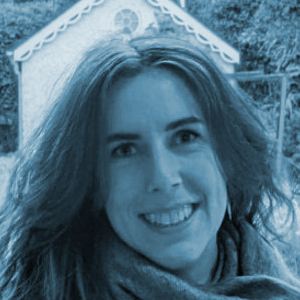
Alex Cackett
Materials Scientist at UKNNL
Impact
Influencing world-leading organisations to shape a nuclear future
Our experts are well-respected in their fields and form part of a thriving community of dedicated technical specialists. The communities have a common aim: to work together to generate new scientific knowledge that can improve how we live.
Dr Deborah Hill is a Senior Fellow in criticality safety. Soon after receiving the Distinguished Service Award from the Nuclear Criticality Safety Division of the American Nuclear Society (ANS) in 2019, Dr Hill was invited to chair the ANS Professional Divisions Committee, the key technical governance committee for the Professional Divisions within the Society. A voluntary role, Dr Hill recently received a highly prestigious ANS Presidential Citation from the Society for her work in transforming the Committee. Through her leadership, an environment has been created where Divisions of the Society can effectively collaborate with the wider ANS leadership on both a strategic and tactical level, to add value to the work of its members. Driving these significant enhancements in a well-respected professional body can make a tremendous difference to the global nuclear industry.
A key success this year is the creation and delivery of an extensive set of onboarding resources for the new Division leadership, which enables them to quickly maximise their impact in their new roles.
International Impact
More widely, the UKNNL Fellowship is currently involved in a range of working groups and other technical leadership roles. The following are some examples of members’ broader impact.
Chairing the OECD-NEA Expert Groups on Fuel Materials, Fuel Recycling and Waste Technology.
Chairing the Board of Management for the Halden Reactor Programme. The reactor, based at the Institute for Energy Technology in Norway, has been an asset for testing fuel and reactor components.
Chairing the ASTM (American Society for Testing and Materials) International Committee that approves the test methods for manufactured carbons and graphites.
“The American Nuclear Society is indebted to Deborah for her hard work and dedication. As Chair of our Professional Divisions Committee, she has played a pivotal role during our organizational transformation in mending and strengthening the relationship between the Society and the elected leadership of its divisions. Her ability to manage a group with diverging interests to forge a set of common objectives is a rare talent.”
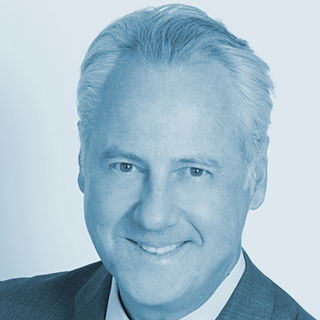
Craig Piercy,
Chief Executive Officer, American Nuclear Society
